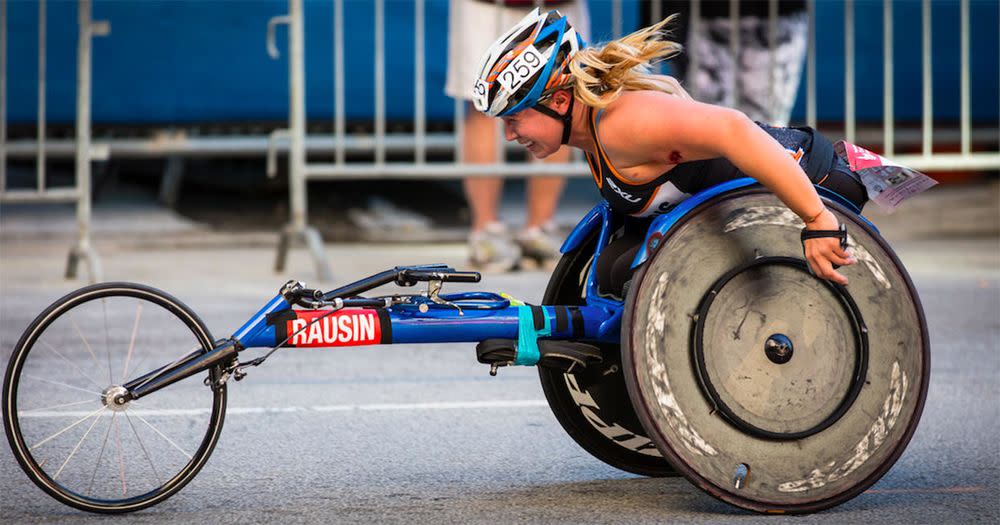Two Badass Wheelchair Runners Share How the Sport Has Entirely Changed Their Lives

Photo: Arielle Rausin
For two of the most badass female wheelchair runners, Tatyana McFadden and Arielle Rausin, hitting the track is about more than earning trophies. These elite adaptive athletes (who, fun fact: trained together at the University of Illinois) are laser-focused on giving runners access and opportunity to discover a sport that changed both their lives, despite numerous obstacles.
Having a disability is a minority status in most sports and running in a wheelchair is no different. There are many barriers to entry: It can be difficult organizing communities and finding events that support the sport, and even if you do, it'll cost you as most racing wheelchairs are upwards of $3,000.
Still, these two incredible women found adaptive running to be life-altering. They've proven that athletes of all abilities can benefit from the sport and have built their own physical and emotional grit along the way...even when no one thought they could make it.
Here's how they broke the rules and found their power as women and as athletes.
The Iron Woman of Wheelchair Racing
You may have heard 29-year-old Tatyana McFadden's name last month when the Paralympian broke the tape at the NYRR United Airlines NYC Half Marathon, adding to her impressive roster of wins. To date, she's won the New York City Marathon five times, seven gold medals at the Paralympic Games for Team USA, and 13 gold medals at the IPC World Championship. ICYDK, that's the most wins at a major race than any other competitor.
Her journey to the podium, however, started way before the hefty hardware and definitely didn't involve high-tech racing chairs or special training.
McFadden (who was born with spina bifida, paralyzing her from the waist down) spent the first years of her life in an orphanage in St. Petersburg, Russia. "I didn't have a wheelchair," she says. "I didn't even know it existed. I slid across the floor or walked on my hands."
Adopted by a U.S. couple at age six, McFadden started her new life in the states with major health complications namely because her legs had atrophied, which led to a string of surgeries.
Though she didn't know it at the time, this was a major turning point. After recovering, she became involved with sports and did everything she could: swimming, basketball, ice hockey, fencing…then finally wheelchair racing, she explains. She says that she and her family saw being active as the gateway to rebuilding her health.

